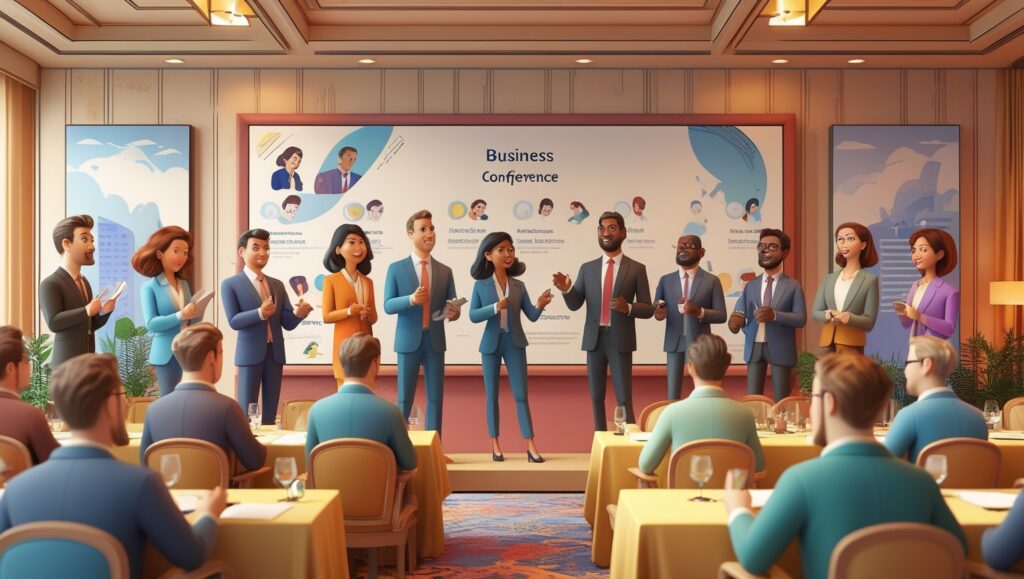Did you know that over 70% of professionals credit leadership conferences as a turning point in their careers? A State Leadership Conference is more than just a gathering—it’s a transformational event designed to develop skills, foster collaboration, and inspire the next generation of leaders. Whether you’re a student, educator, or business professional, these conferences provide unmatched opportunities to network, learn, and grow.
In this guide, we’ll break down the value of State Leadership Conferences, highlight the skills gained, explore networking opportunities, and uncover how they shape the future of leadership across industries.
What is a State Leadership Conference?
A State Leadership Conference (SLC) is a large-scale event hosted by organizations, associations, and educational institutions to promote leadership development, career readiness, and personal growth. Typically held annually, these conferences bring together students, teachers, business leaders, and professionals for:
- Workshops & Seminars on leadership, teamwork, and innovation.
- Competitions that test problem-solving, communication, and technical skills.
- Keynote Sessions from industry experts and motivational speakers.
- Networking Opportunities with peers, mentors, and employers.
From high school students in career technical education (CTE) programs to working professionals, these conferences empower attendees to develop confidence and leadership skills that last a lifetime.
Why Attend a State Leadership Conference?
Attending a State Leadership Conference offers a wealth of benefits:
1. Leadership Skill Development
Workshops often focus on communication, public speaking, conflict resolution, and decision-making—skills that employers consistently rank as top priorities.
2. Career Exploration & Advancement
SLCs give participants exposure to various industries, allowing them to explore career paths and gain hands-on experience through competitions.
3. Networking Opportunities
Building meaningful relationships with like-minded peers, mentors, and industry professionals can open doors to internships, scholarships, and future jobs.
4. Recognition & Awards
Many conferences feature competitive events that allow participants to showcase their knowledge and talents, with winners advancing to national levels.
Key Highlights of State Leadership Conferences
Experiential Learning through Competitions
Most SLCs feature academic, technical, and leadership competitions. For example, participants might present business plans, solve real-world case studies, or showcase STEM projects.
Inspiring Keynote Speakers
Hearing from successful entrepreneurs, civic leaders, and innovators motivates attendees to pursue ambitious goals and think beyond their limits.
Workshops and Breakout Sessions
Interactive sessions cover topics such as:
- Time management strategies
- Personal branding and professional etiquette
- Leadership in digital environments
- Community impact projects
Community and Service Focus
Many State Leadership Conferences emphasize giving back, encouraging students to participate in service projects that strengthen civic responsibility.
How State Leadership Conferences Impact the Future
State Leadership Conferences are not just about immediate skills—they shape long-term career success. Research shows that students who participate in leadership events are:
- 50% more likely to pursue leadership roles in college or professional organizations.
- 35% more confident in public speaking and teamwork.
- More employable, as they demonstrate initiative, resilience, and adaptability.
Employers increasingly seek soft skills alongside technical expertise, and SLCs provide a platform where both are nurtured.
FAQs About State Leadership Conferences
1. Who can attend a State Leadership Conference?
SLCs are typically open to students in leadership organizations (e.g., FBLA, DECA, HOSA, SkillsUSA), educators, and business professionals.
2. How do I prepare for an SLC?
Preparation includes registering early, practicing for competitions, researching keynote speakers, and networking online beforehand.
3. Are State Leadership Conferences only for students?
No. While many are student-centered, they also include educators, mentors, and professionals who provide guidance and insights.
4. Do these conferences lead to career opportunities?
Yes. Many participants secure internships, scholarships, and job offers through the connections made.
5. What is the difference between state and national leadership conferences?
A state conference serves as a stepping stone to national-level competitions and events, offering recognition at a broader scale.
6. Can virtual attendees benefit?
Absolutely. Many SLCs now offer hybrid options, allowing remote participants to attend workshops and keynotes online.
7. How can schools or organizations get involved?
Schools can partner with associations, sponsor students, and volunteer, making these conferences more accessible to communities.
Conclusion
The State Leadership Conference is more than an event—it’s a launchpad for personal growth, career readiness, and lifelong leadership skills. By attending, participants gain valuable experience, forge lasting connections, and open pathways to future opportunities.
If you’re ready to take your leadership journey to the next level, start exploring upcoming events and secure your spot today.
👉 Join the Conferences Portal Here















